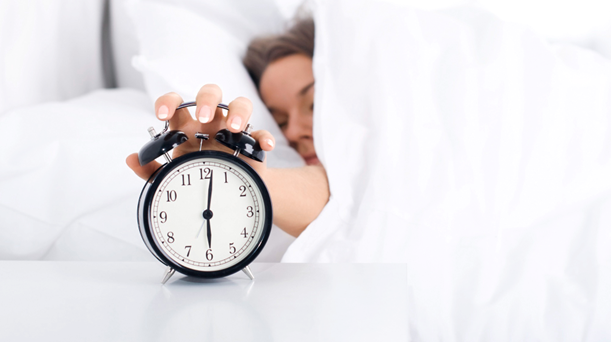
Teachers and educators often struggle to keep up with the demands of their jobs. It is no surprise that teaching and education can have a serious impact on sleep and the overall state of health as well. For example, fatigue can impair your concentration, and memory, and even lead to mood swings. Here is everything you need to know about the negative effects of sleep deprivation on teaching and education, as well as how to get the most out of your sleep so that you can perform at your best in class.
How Do Sleep Deprivation Affect Teachers?
Sleep disorders are a common problem among teachers and students. They harm the brain and can cause problems with memory, mood, attention, and focus, which can lead to errors in your teaching. When you are tired, it is harder to stay calm and act responsibly.
According to statistics, 43% of the surveyed tutors reported that they slept an average of six hours or less per night. They may sleep even less while preparing for exams or writing lengthy reports. Fortunately, there are writing services review websites, such as Best Writers Online, that can assist you in producing any piece of writing.
This is why it is so important for teachers to get enough sleep. It not only improves their job performance but also helps them retain more information. Aside from affecting your ability to teach, lack of sleep can also lead to other serious health problems like obesity and diabetes.
The Key Consequences of Sleep Deprivation for Teachers
There are many negative consequences associated with sleep deprivation for teachers:
Reduced cognitive performance;
Increased susceptibility to errors;
Higher levels of stress;
Difficulty concentrating;
Impaired decision-making;
Poor judgment;
Increased risk of accidents and injuries.
All of these effects can have a serious impact on the ability of teachers to do their job effectively. In some cases, it may even lead to them becoming ill or suffering from mental health problems. It is especially true if they are already dealing with high levels of stress and pressure.
Teachers must get enough sleep so that they can perform at their best both in class and outside of it. If you are experiencing any difficulties sleeping, then talk to your doctor about any possible treatment options. You can also take preventive measures to ensure a good night’s sleep.
The Best Sleep Aids for Teachers
Some of the most popular ways to fall asleep include:
Sleeping pills;
Noise-canceling headphones;
Meditation apps.
There are, however, some effective tips that can help you improve the quality of your sleep without gadgets and pills:
1. Create a Regular Sleep Schedule
To make sure that you get the most out of your sleep, it is important to establish a regular sleep schedule. It means that you should go to bed and wake up at the same time every day, no matter what. Such a schedule will help you get into a routine and ensure that you are getting enough restful sleep.
2. Get Blackout Curtains
Blackout curtains can be a great way to get the sleep you need while keeping your room dark and quiet. They help regulate your sleep cycle, preventing you from being disturbed by light or noise.
3. Remove Electronics from the Bedroom
Electronics are harmful to your sleep, and it is important to get rid of them if you want to get a good night’s sleep. Electronics emit waves that interfere with the brain’s natural rhythms. It can cause problems like insomnia, fatigue, and difficulty concentrating.
In addition, they emit EMF radiation, which can disrupt your body’s endocrine system and reproductive systems. If you are struggling to sleep, the best thing to do is reduce or eliminate your exposure to electronics before bedtime. Try turning off all screens an hour before bedtime and putting your devices away in a secluded area where they will not bother you during the night.
4. Never Work in a Bed
Avoid working at your computer in bed. Instead, use some other form of productivity software that does not take up so much time (like an e-reader). If you have many written tasks to do or prepare, you can delegate some of them to custom writing reviews websites such as Writing Judge.
5. Practice Relaxation Techniques Before Going to Bed
There are a few different ways that you can practice relaxation techniques before bedtime to help you get the best sleep possible. Some simple methods include:
Take a bath. It will help relax your body and clear your mind before bed;
Practice yoga or meditation. These practices can help calm your mind;
Remind yourself why you are sleeping. It can help you stay motivated and focused during the sleep process.
6. Exercise
Make sure you are getting regular exercise. It is one of the best ways to relieve stress and improve your overall mood.
7. No Coffee Before Going to Bed
Coffee is a stimulant, and while it may be beneficial in the morning to get you energized and ready for the day, it is not recommended to drink it before bed. This is because coffee can increase your energy levels in the short-term, but eventually cause disruptions to your sleep cycle. Instead, try drinking chamomile tea or taking an omega-3 fatty acid supplement before bed.
Conclusion
Being a teacher is not an easy job because you have to be mentally and physically fit all the time. Working late night shifts or getting up early in the morning can negatively impact your performance and health. To keep yourself alert, you should not only create some schedules for your everyday life and stick to them like a pro, but also make sure that you get enough sleep to be ready to tackle your responsibilities without any issues!











